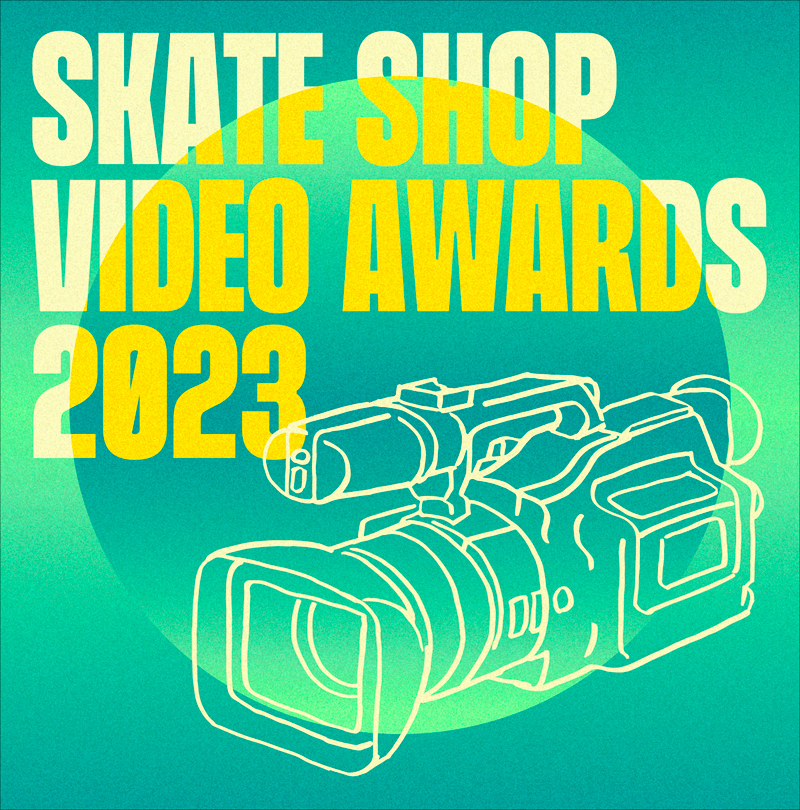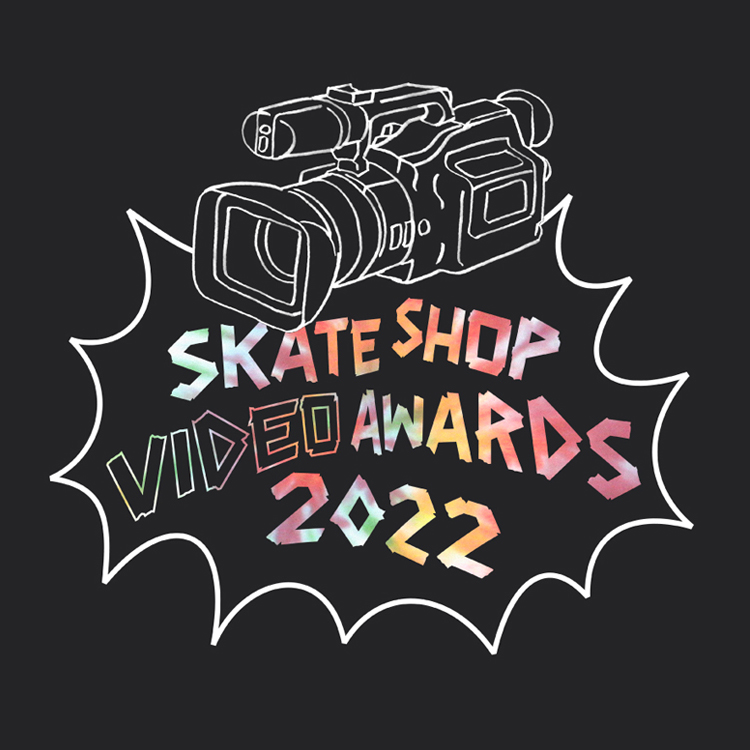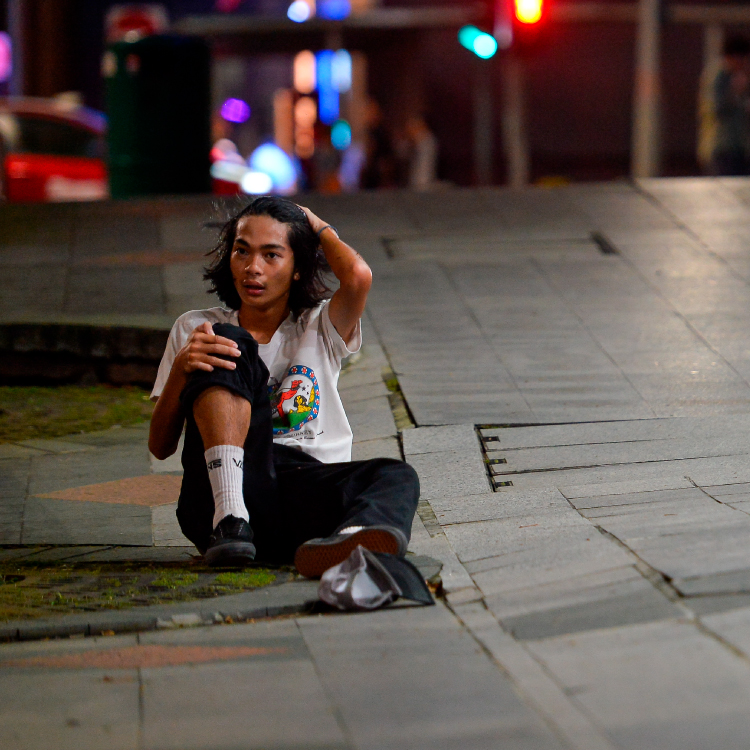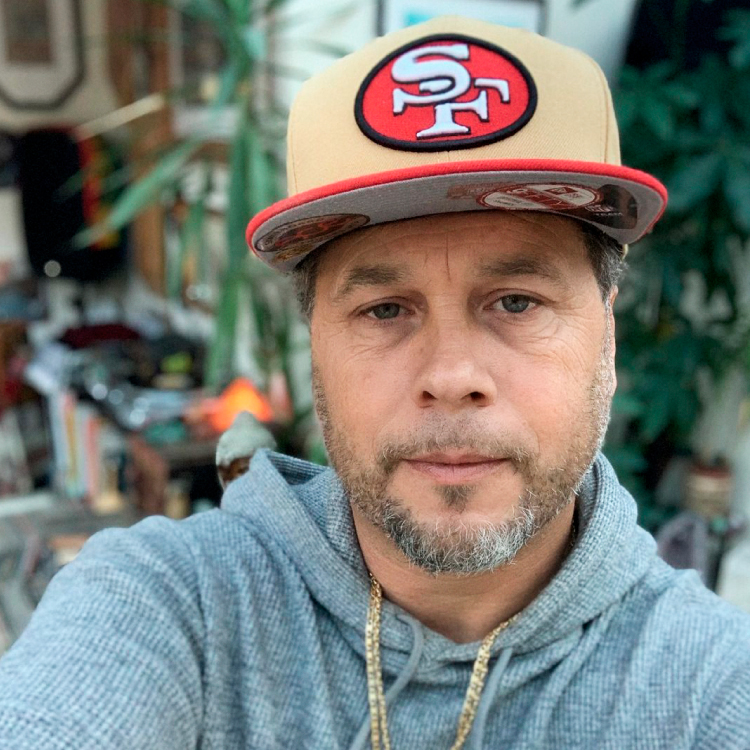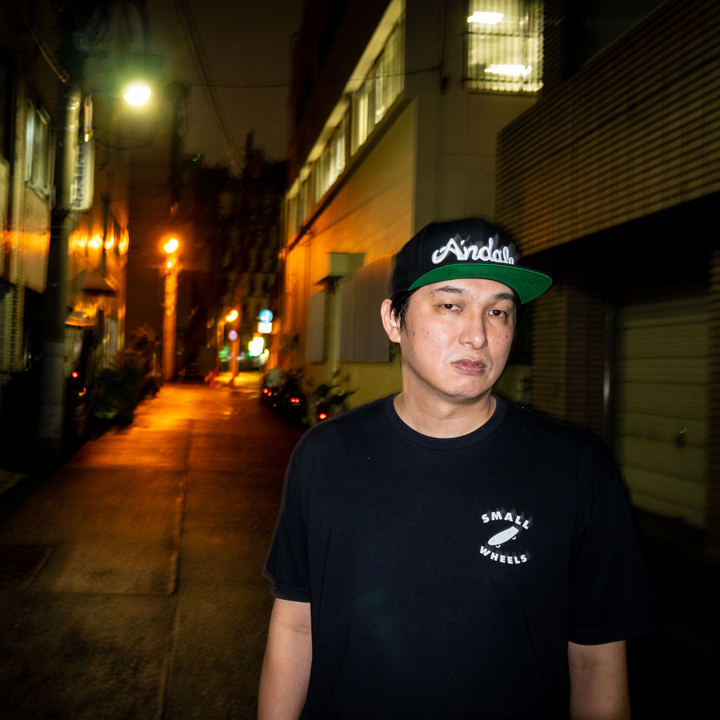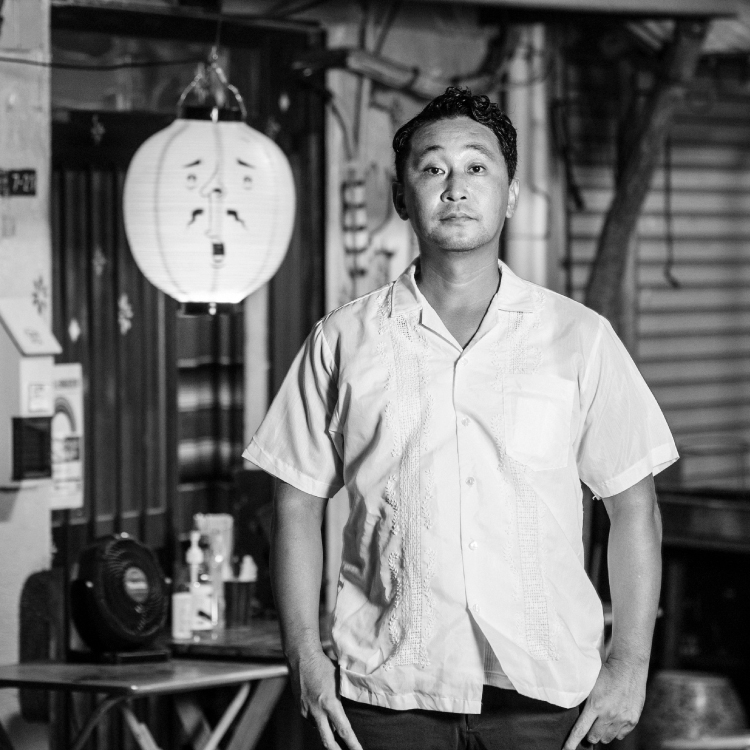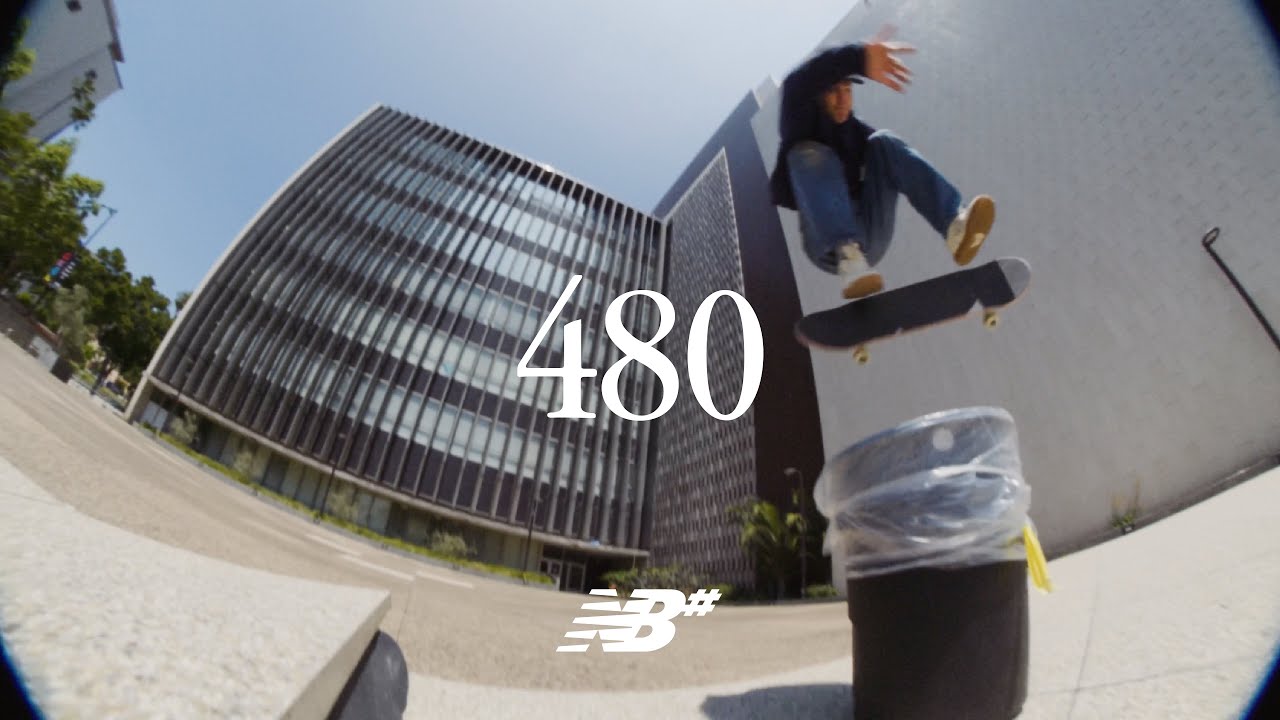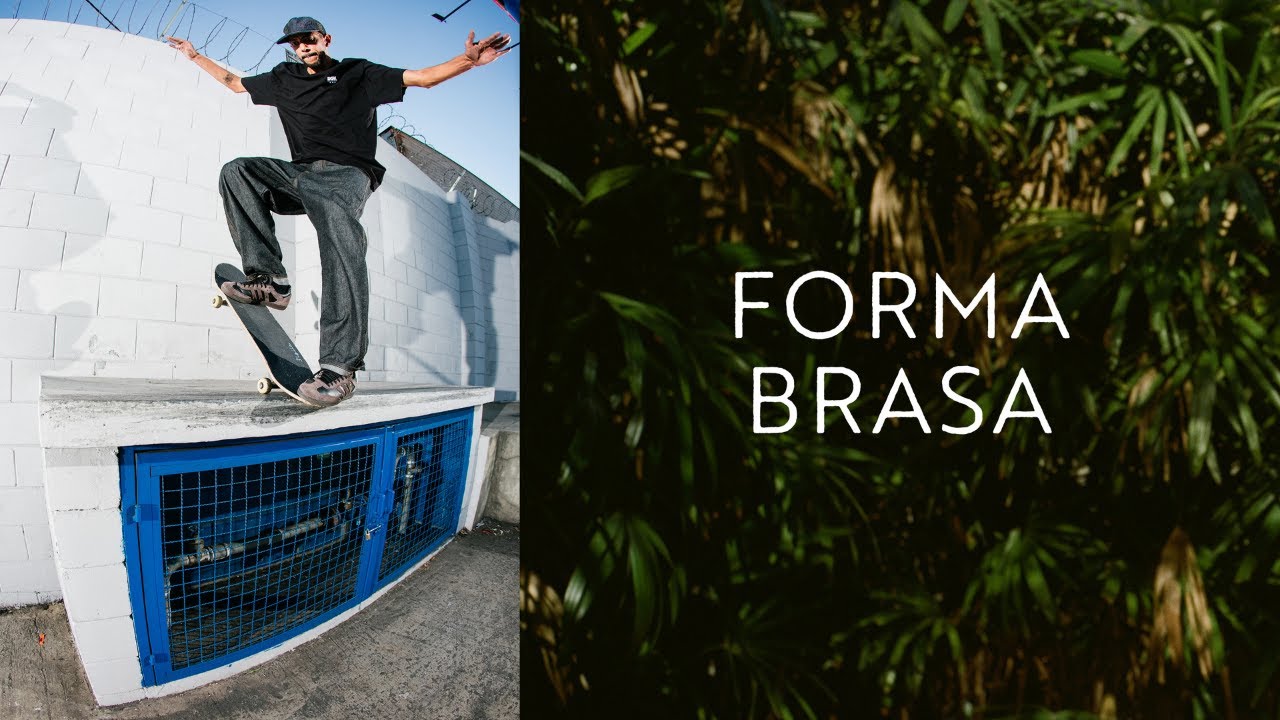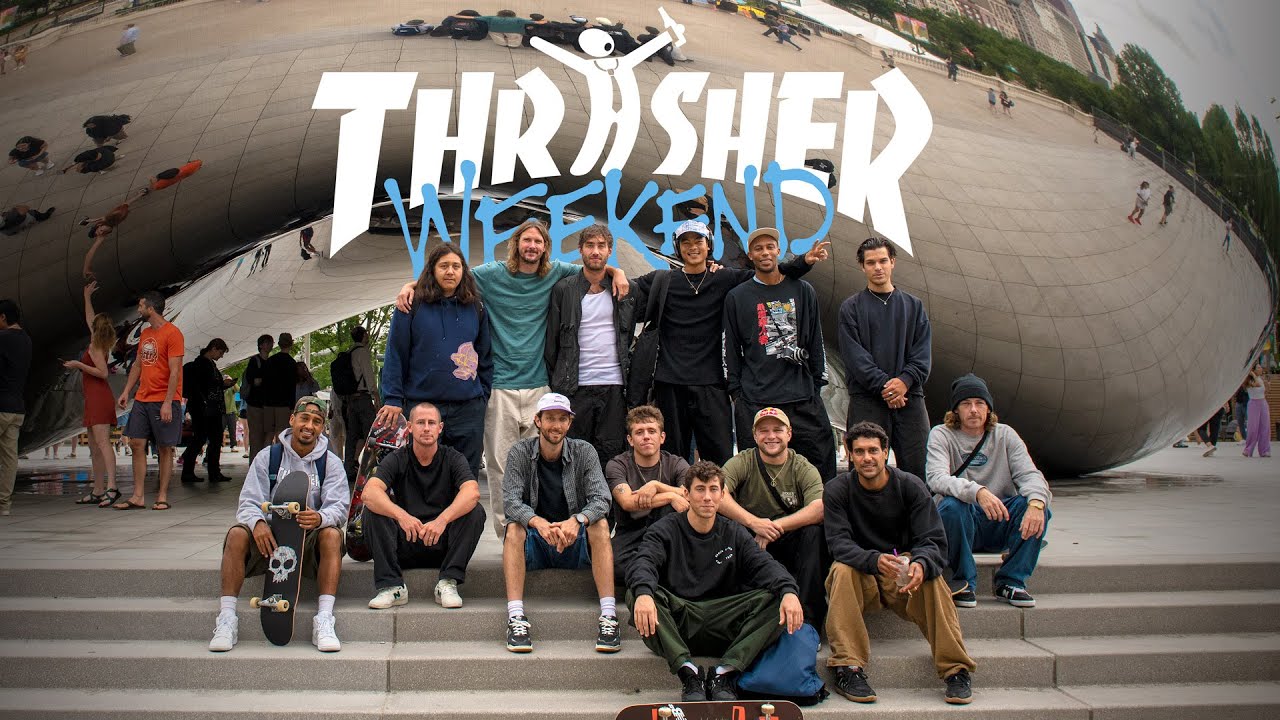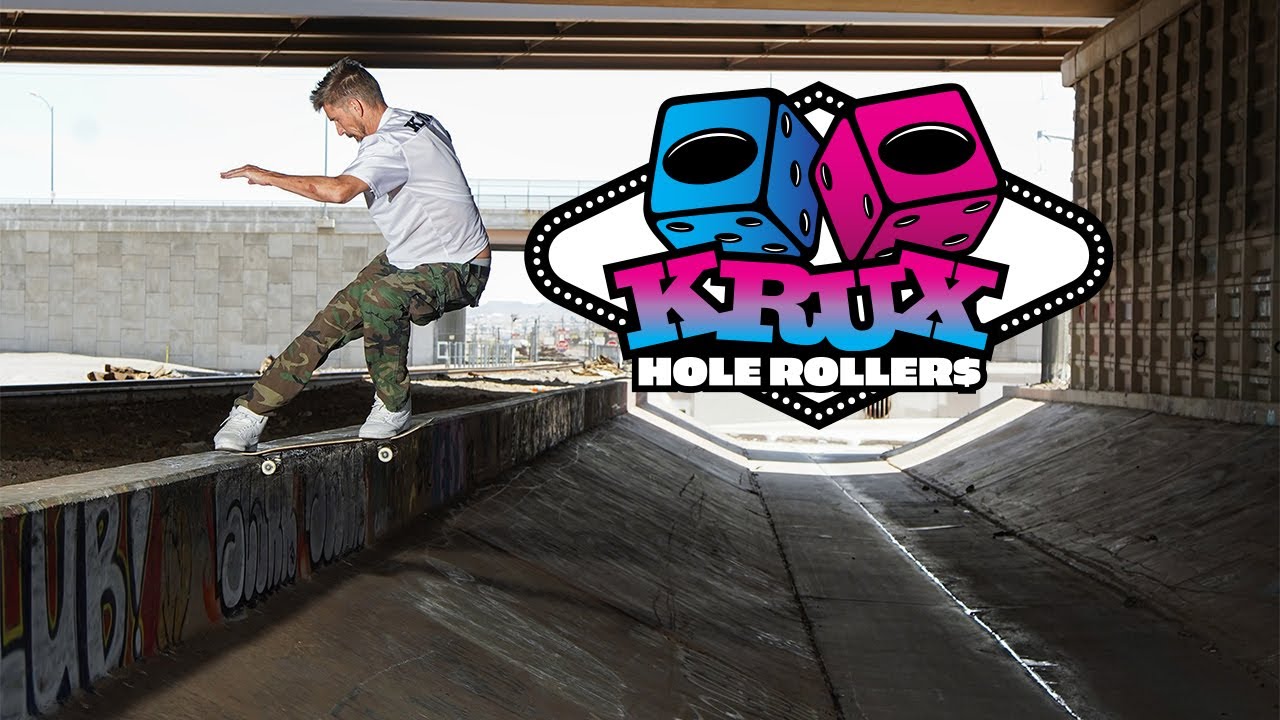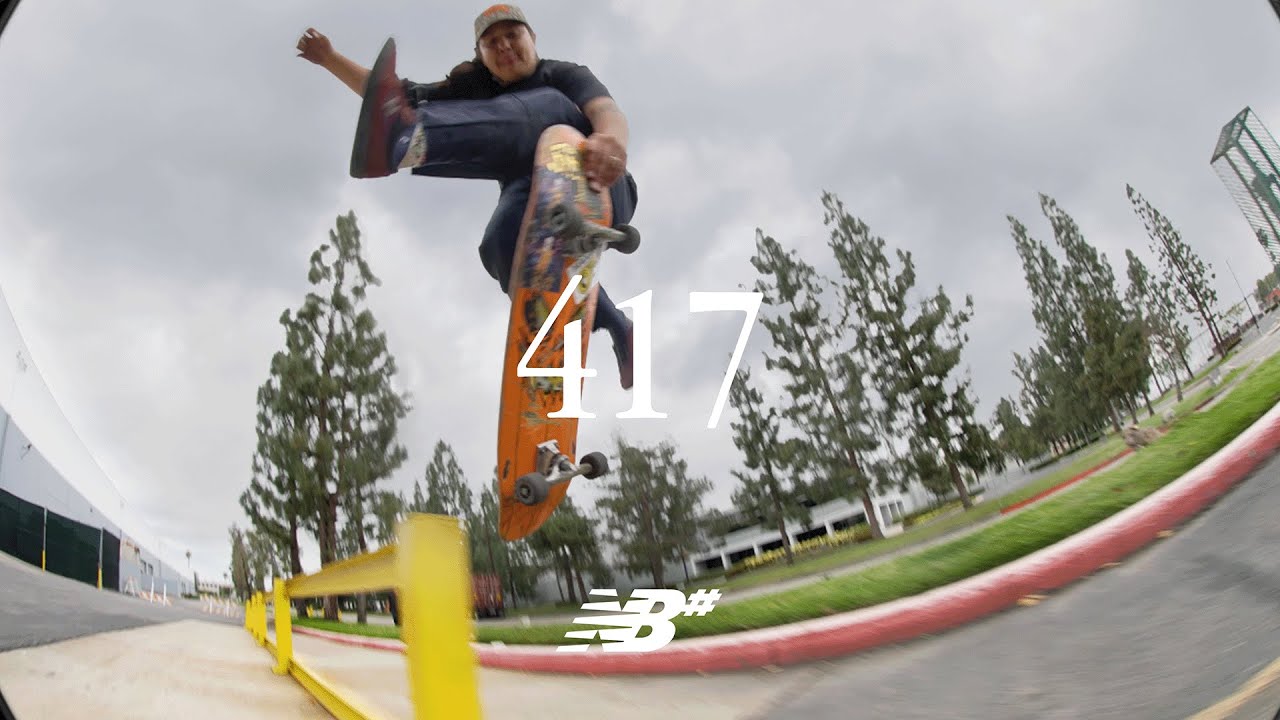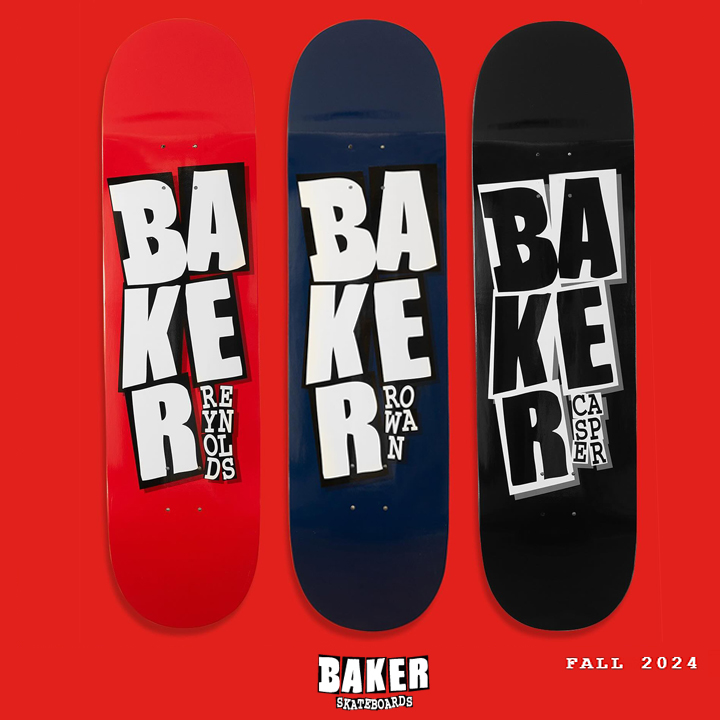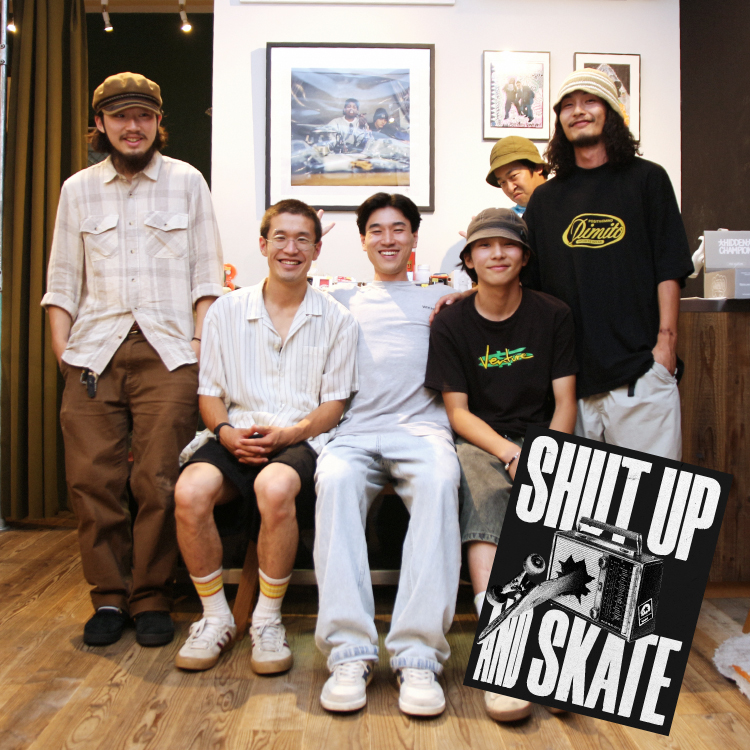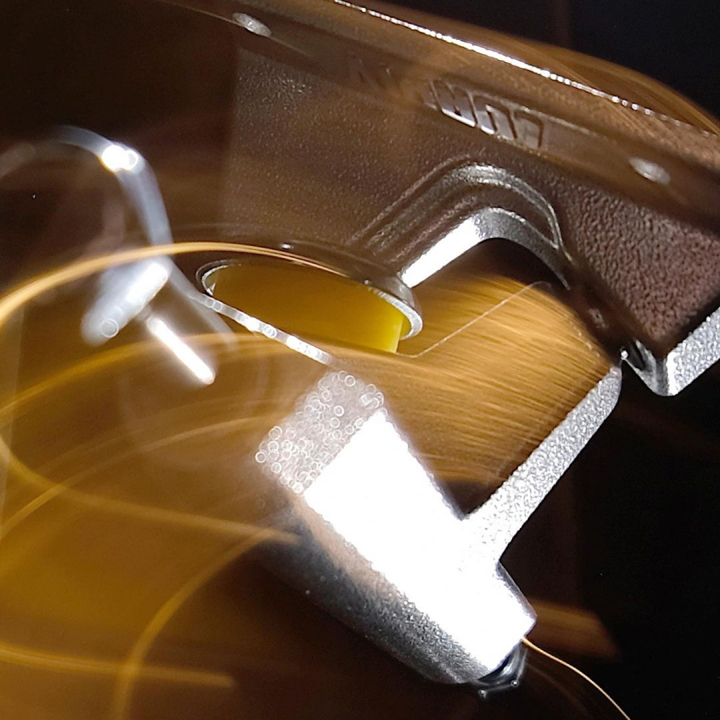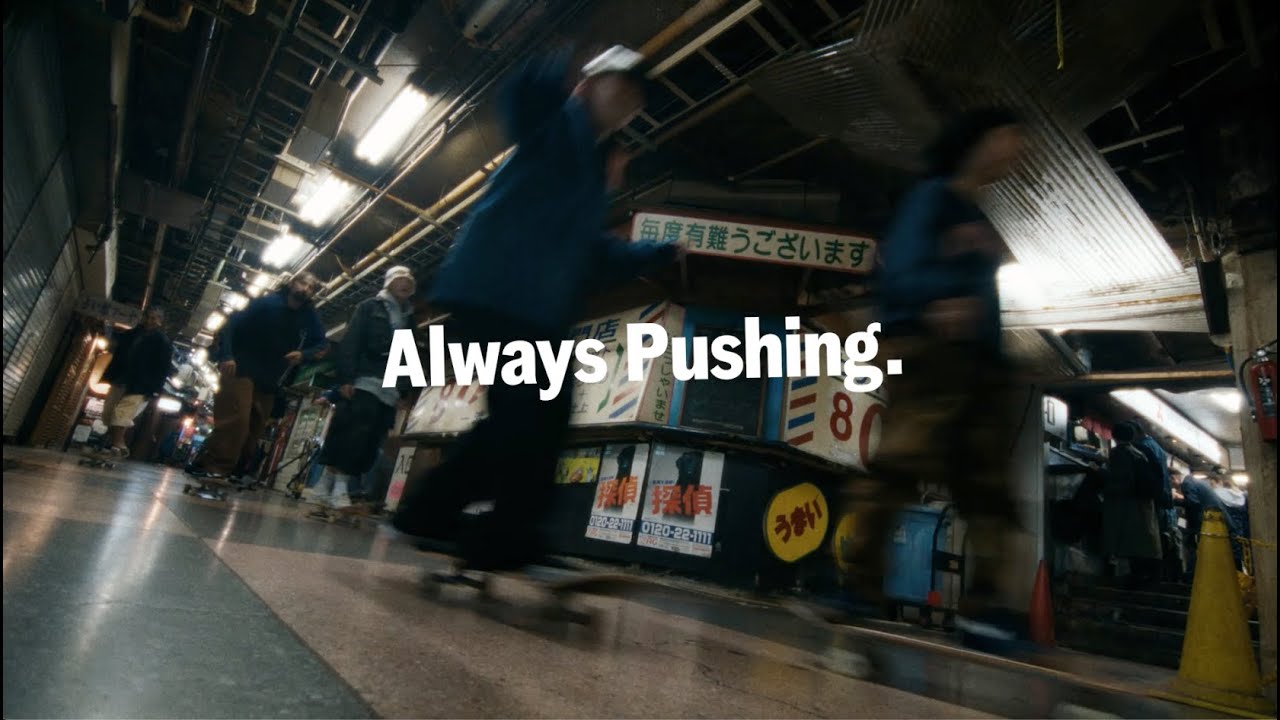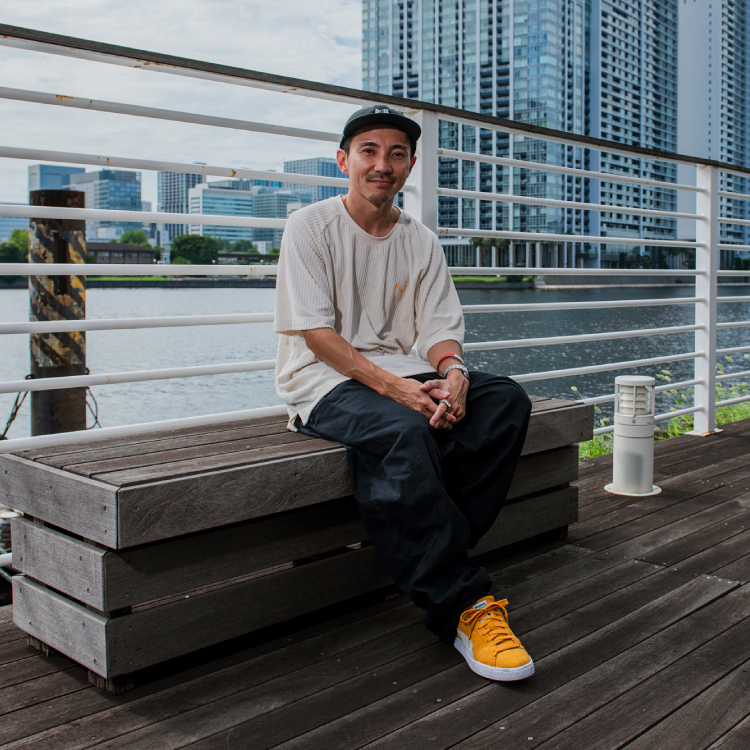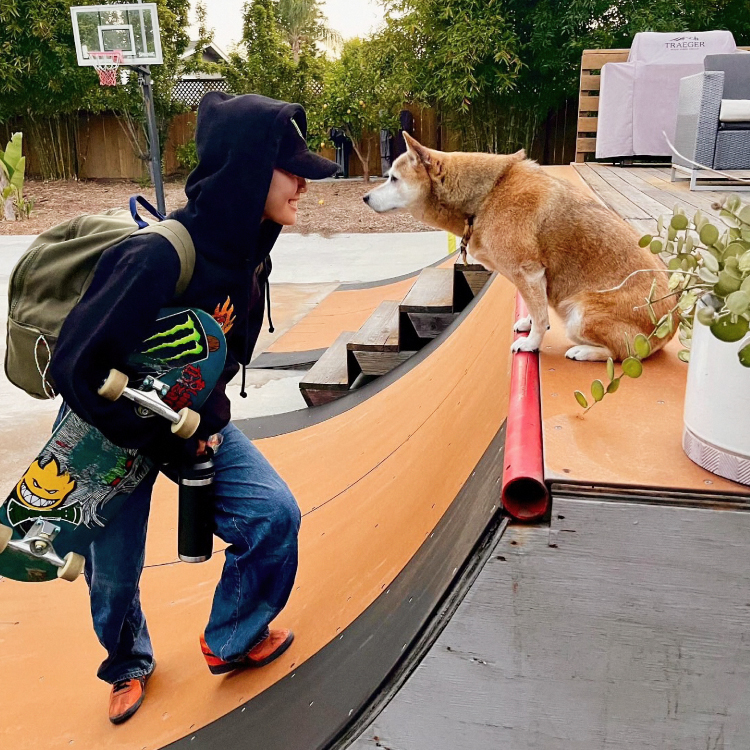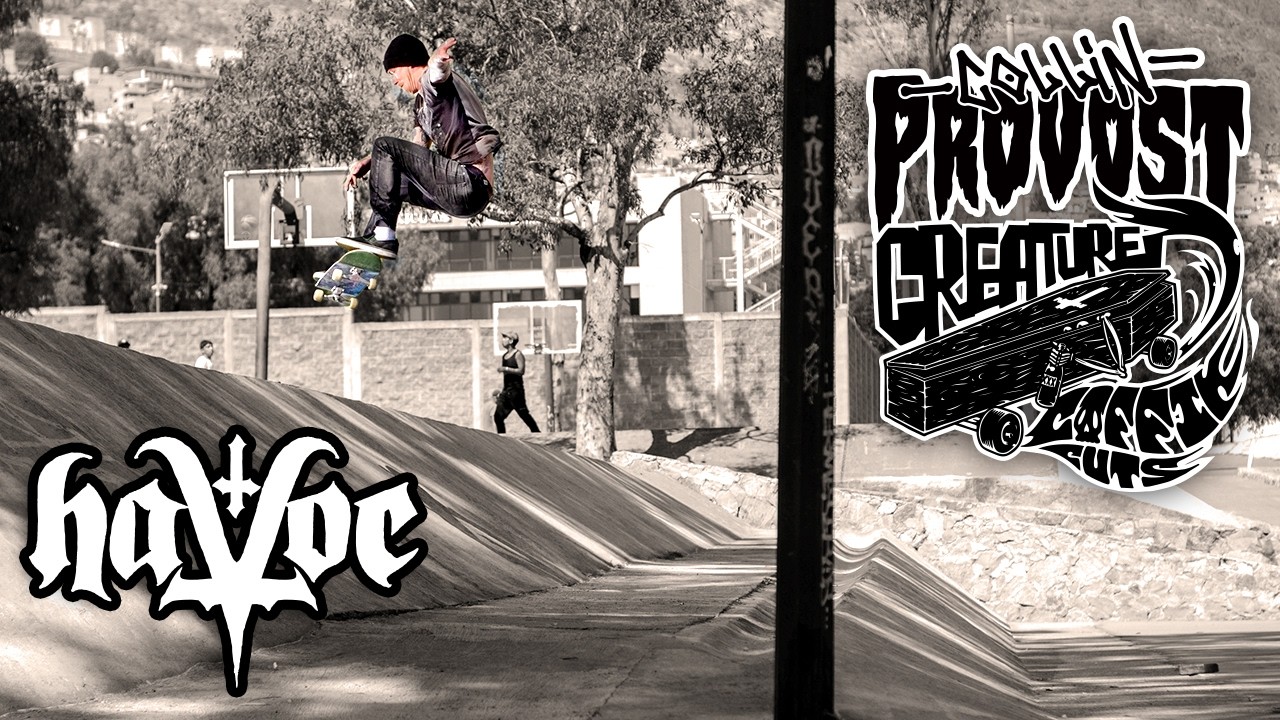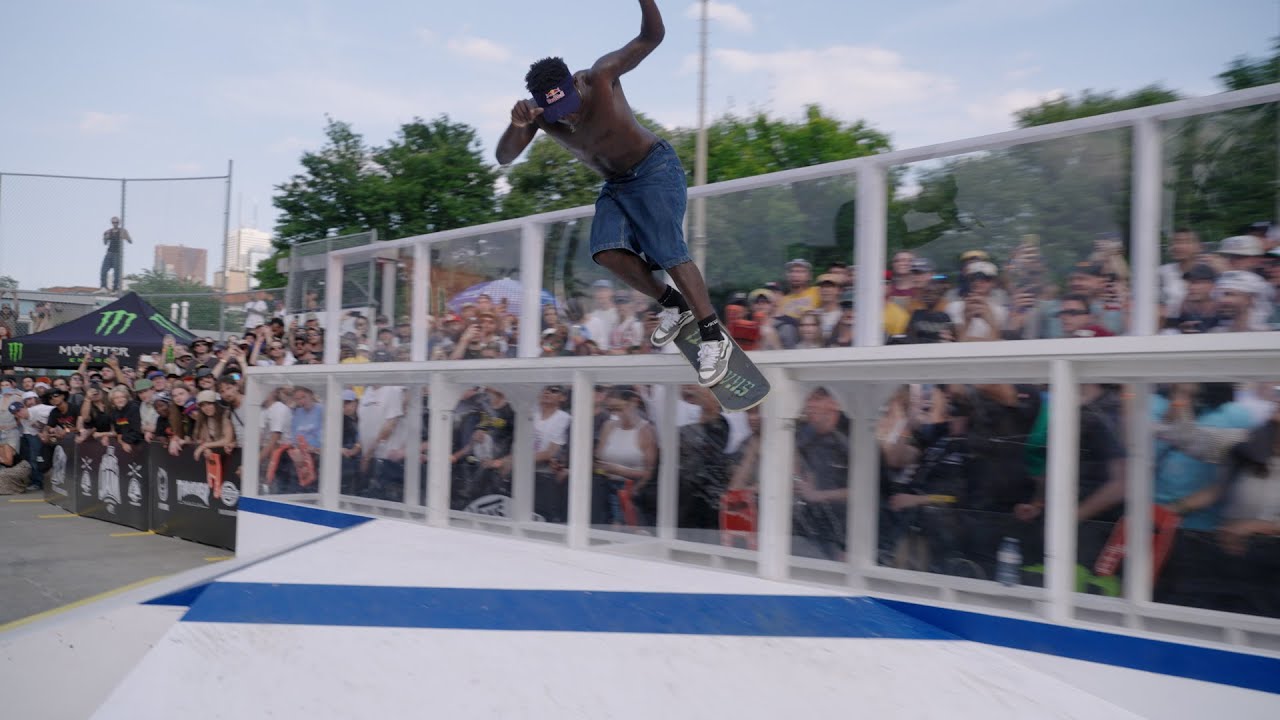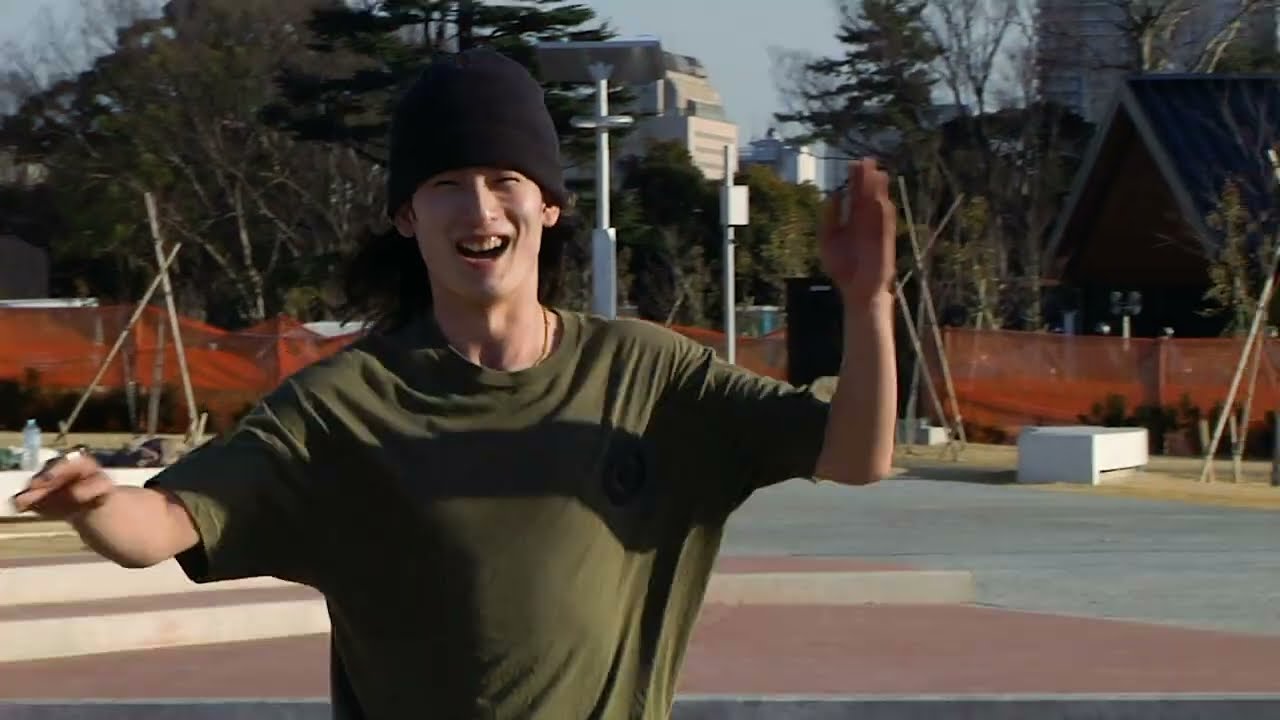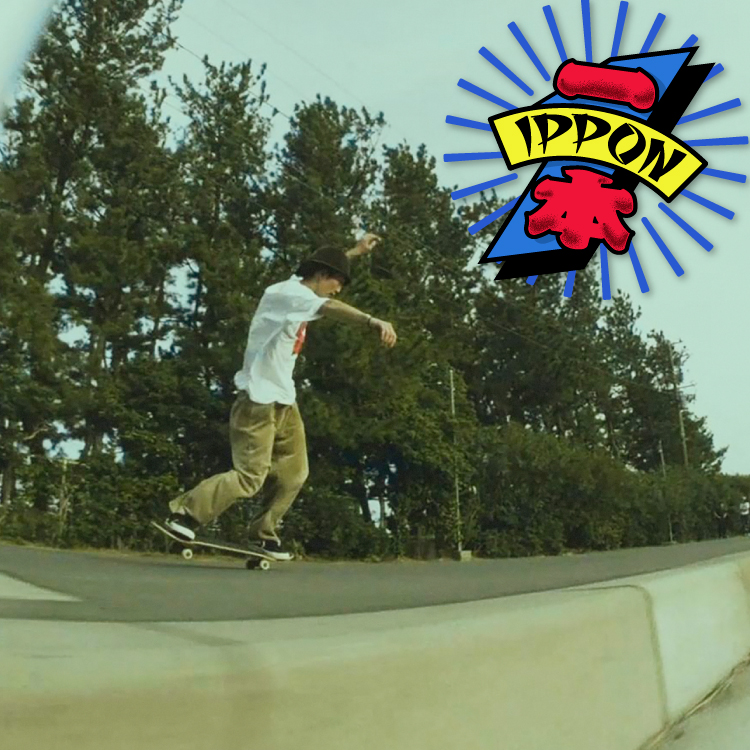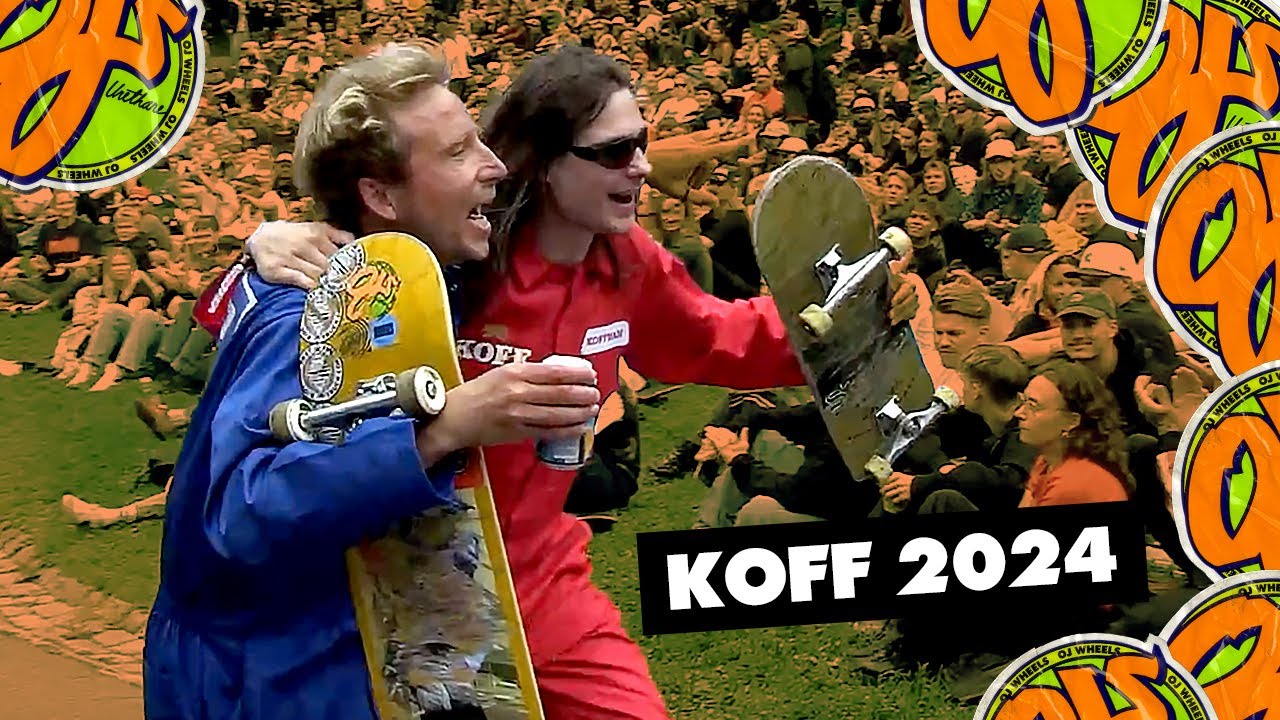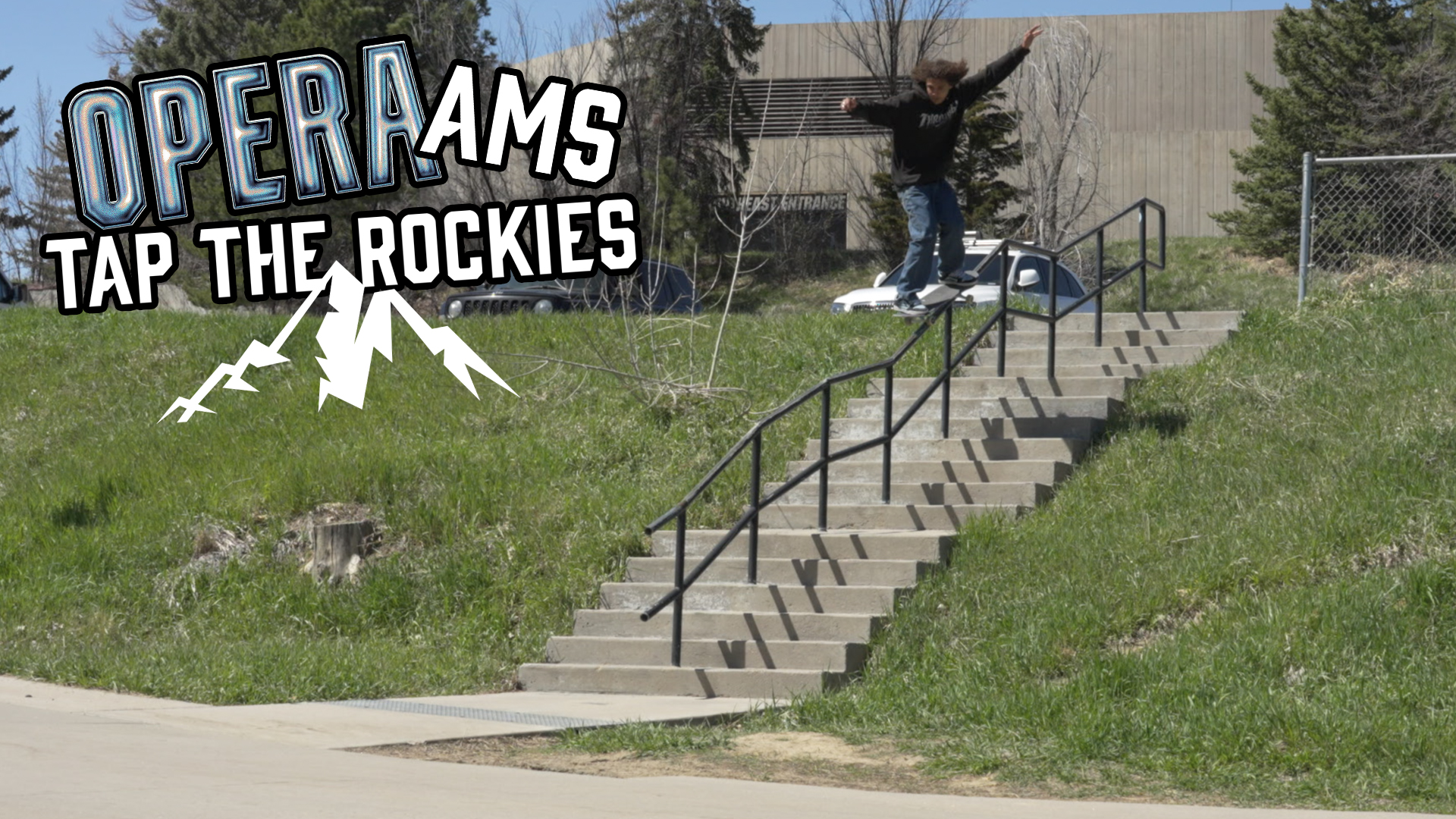VANTAN SKATE & DESIGN is an academic course that specializes in skateboarding and they've just produced their first graduates this year. We sat down with three instructors to get a glimpse of what's happening in this unique high school.
──ISSEI × ROB TARO × HIROKI (ENGLISH)
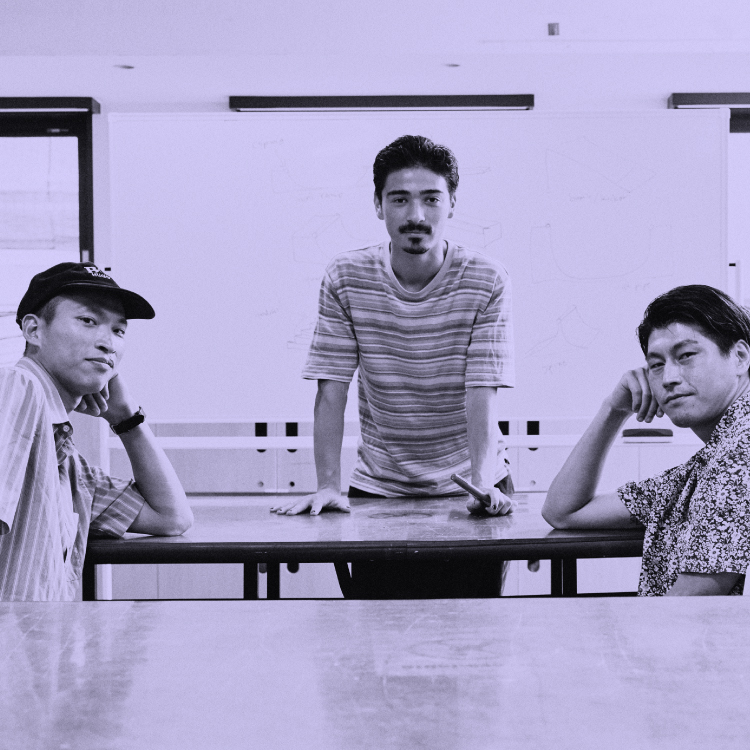
[ JAPANESE / ENGLISH ]
Photos_Junpei Ishikawa
Special thanks_VANTAN
VHSMAG (V): First of all, when did you start teaching at VANTAN SKATE & DESIGN?
Hiroki Muraoka (H): They just had their first graduates this year so it's been three years now. I had another design job when I started so I was just teaching once a week. I had an experience as a skate instructor so I just took the offer without thinking too much. I teach skating and illustration.
Rob Taro (R): I started teaching the same year. I'd never heard of skate high school so it was like a dream job... I was excited that I get to teach skating and its culture at a high school. I was teaching skating and English at first and video editing came in later.
Issei Morinaka (I): I started a year after them. I was supposed to teach at Osaka school but it was right when I was thinking about moving to Tokyo. So they hired me in Tokyo. I just teach skating.
V: Are there any subjects other than the ones you teach?
H: Ackky is teaching fashion and graphics. Other than that, the school is affiliated with N School where you study to get graduation eligibility like GED. Regular high school teacher is in charge of that.
V: How does the skate class work?
I: Basically, it's like having a session with the students. I teach the students who just started skating. If they're good, I think they know the ropes and I'll just give them advice here and there. If a student wants to get a sponsor, I'll teach them how to get one.
H: When I was teaching the first batch of students, which was unprecedented, I was still struggling with it. I tried to divide the students into different levels like other skate schools, but there were too many students and the levels were all over the place... Hey Rob, were you there when we had the first class at that open space in Shinjuku?
R: Yeah, I was there. At first we tried to see how much they could skate. But there were too many students, so...
H: I asked them what they wanted to do, and they were like, hardflip, treflip, ollie... The levels were all over the place. So we started having sessions, and I'd give advice when they needed one. I'd film the students and show them the footage. Then from the second or third session, we started going to skateparks.
I: In my case, I was trying to get to know everyone. It's more like a friend than an instructor. There were some skaters I used to skate with, so I'd tell them that I'll be teaching them at the school. I also have conversations with my students like, "Have you met any girl recently?" Basically I try to be friends with them. I tell them what not to do when I need though.
H: We're basically all skaters. Just skater friends.
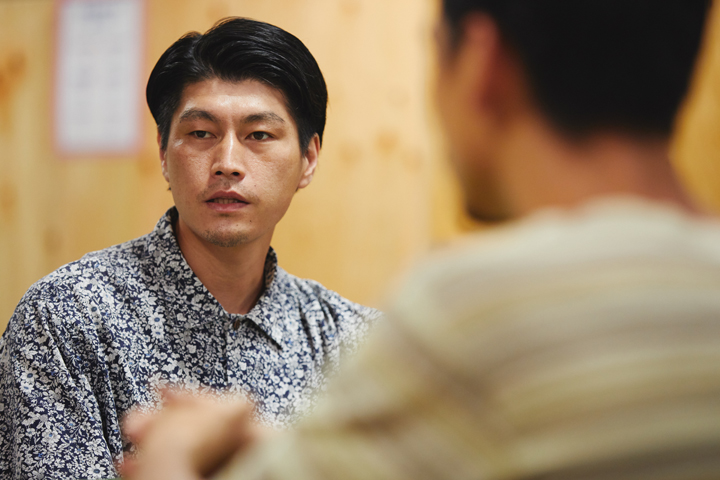
V: I guess it's a lot closer than the normal high school teacher-student relationship. Who else is teaching at VANTAN right now besides you guys?
H: Itoshin and... Ryo Motohashi too?
R: Yeah. I think he replaced Itoshin. Satoru Taguchi was there at the beginning.
I: There's Issei Kumatani and Leo Takayama in Osaka... I also heard that Takeshi Kageyama will be joining them.
V: How do you guys teach classes other than skating?
H: When it rains and we can't skate, sometimes I take the students to the museum. I'd teach them about the background of the times while watching skate videos, or we'd watch Spike Jonze's movies. When it comes to drawing/illustration, I basically separate it from skating. Sometimes I'm like, "Let's draw like you're making a board graphic," but I'm not trying to force it to be associated with skating.
R: I was teaching them English words that you use in normal conversation, but it was hard to get them interested. They love skating so much that it was all they talked about. So I started to mix in words that skaters use and introduce the history of skating. I also corrected words that are used wrong in Japan. For example, "curb" is a low step where you do a slappy and it's not "box." Or it's not "American push" but "mongo push." And then we do quizzes like Skate Nerd. I try to teach English through those kinds of skate-related activities.
V: How about video editing?
R: A lot of students aren't interested in skate videos and video parts because everyone is on Instagram now. That makes things a bit difficult... But on the other hand, there are students who have all the equipment and are interested in filming and video editing. I push those students to learn more about how to edit their videos, and I try to collect ideas from those who want to be filmed. We're not just making skate videos, we're also making a documentary type video about a day at school. I also teach them about the filmmakers and directors that I like. I tell them about people like Spike Jonze, who makes music videos and movies through skate video production.
V: Do you ever feel that you're growing with your students?
H: In normal life, you don't have many opportunities to interact with high school students. You might skate with them at a skatepark, but you never really hang out with them. I guess I'm more relaxed with high school students now. I think I was a bit nervous at first.
I: Yeah. I've learned how to interact with my students. I can get along better with them if I'm goofing off a bit.
H: The students will feel it if we're nervous. It's better to be relaxed in a good way (laughs).
R: The students I taught the first year graduated this year, and I feel like we've grown together. There are a lot of students who can do tricks that I can't do, so we'd exchange tricks and teach each other (laughs). I've never been a teacher before, so in the beginning I thought too much about how to get the students to like me and how to get them to be interested in me, and there were times when I made mistakes. On the other hand, I learned a lot from that. But really, I think it's best to get along with the students. Sometimes I think I was too strict with them. I think I should've listened more about what they wanted to make in video editing class. I try to be more flexible these days than I used to be.
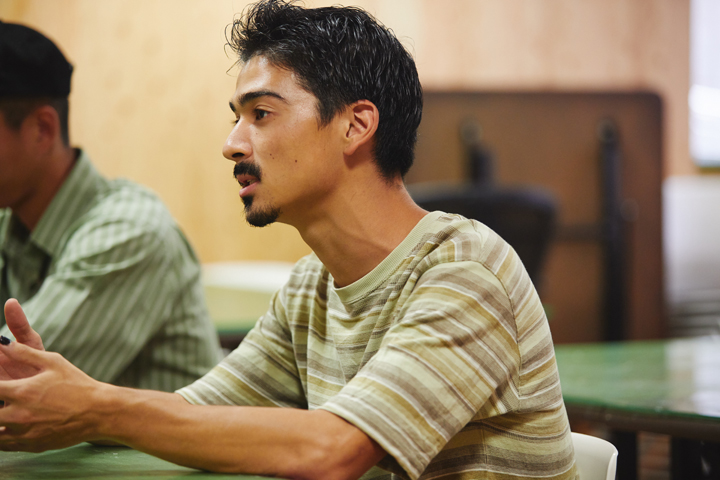
V: You don't need to learn every single trick in skating. So of course there are tricks that students are good at and instructors are not... Does that get in the way when you're teaching skating as an instructor?
I: I'll just get the student who can do the trick and have him teach (laughs). We teach and learn, it goes both way.
R: Yeah, we can learn together (laughs).
V: Maybe it's because a lot of people are starting to skate these days, but park etiquette has become an issue. When you're teaching a class at the park, you're going to have a good number of people there, right? Is there anything you keep in mind?
H: I remind my students not to litter, and to say hello to the other people skating at the park. But for example, if there are a dozen people at the park, nowadays, there's a chance that those people aren't locals. So there are times when I think, "I'm not sure if I want all the students to say hello to everyone at the park." If every student said hello to everyone, it can get awkward (laughs).
I: It's better to talk to the skaters who are there as much as possible though. And it's definitely better to make more friends. You never know who's going to introduce you to something you want to do in the future. I think it's good to put yourself in a big community, so I try to tell them that.
H: Yeah. You should definitely have a conversation. If a large group of students suddenly show up at a local park and skate all at once without saying hello and then if they left just like that....
I: That doesn't look good (laughs).
V: Especially the instructors are all well-known skaters (laughs). By the way, do you have exams like a normal high school?
H: Not in our class. But the N school I mentioned earlier has five regular subjects, so there are exams.
V: What about events outside of class? In a normal high school, there's a field trip.
H: First of all, there's a trial class event for middle and high school students interested in VANTAN's Skate & Design course, where they skate with us and have a demo by the instructors. We also have an ollie contest. After they're in the course, there's a cultural festival and a presentation of works at the end of the school year, but the students come up with their own ideas. They show their videos and sell T-shirts they made.
I: We also visit distribution company that carry skate brands.
H: Yeah. we'd visit distributors and show the students how they work. We also go check out brand exhibition too.
R: We also had a skate camp. We went to a skate park called Unchainz, and we skated all day and made a video. Then we had a BBQ at night.
H: A legit skate camp.
──Issei Morinaka
V: That's awesome. So you have a special learning environment where all the students are skaters, what's the best thing about it?
H: Everyone gets along well with each other. There was a student who didn't like school in junior high, but when he entered VANTAN high school, he started coming. I thought that kind of thing was great. I think it's amazing that students who don't fit in at a normal school are able to find a place where they belong.
I: Even if you're a little shy, you can get along if you skate together. And then they get together and start hanging out.
H: I think we can relate to each other through skating. I think there are kids that are thinking that they didn't fit in before at other school, you know?
V: It's an amazing environment to have a group of people in school that you can relate to. Rob is from the US and skating is more popular; are there schools like this in the US?
R: No, I don't think so (laughs). My American friends ask me, "What are you doing in Japan right now?" They get surprised when I tell them I teach skating in high school. They're also surprised that we have a class to make a skate video. I've been teaching for three years now and I still can't believe it (laughs).
V: You have famous skaters in your class too.
H: Taiho Tokura and Kyonosuke Yamashita.
I: We have Daisaku Hidaka too. We also had Kaya Sakakibara and Kento Yoshioka.
V: Does having a super good skater in the class affect other students in any way?
R: Not at all. I thought everyone would be nervous, but they get along so well that it motivates them to skate. They just enjoy skating together.
V: Have you had students who were shy that they could't get along with others?
I: Yeah, we did.
R: But we're all skaters, so no one wants anyone to feel left out. There was a student who was shy, didn't talk to anyone at first, didn't like school, and didn't come to school much. He couldn't even do an ollie. So I taught him how to do power slides with your hands on the ground, and he started to feel happy. He started to cheer up a little bit. And then other students taught him how to do a no comply, and they started getting along with each other. They started hanging out from there. I'm glad that I was able to see that happen.
V: There must have been a lot of unforgettable events like that.
H: In my first year as an instructor, I had a student who broke a bone. After that, everyone called him "Kossetsu (broken bone)." It was his first broken bone and it stuck (laughs).
R: Yeah, people call him Kossetsu Strobeck (laughs).
I: I was teaching a class at ShinYoko park on a rainy day, and Lakai team showed up. I was stoked to see Tony Hawk skate. There were quite a lot of people there, like Riley Hawk. But his dad was skating harder than anyone. It was amazing.
R: The students that graduated this year finally got interested in video editing. They started working on Pokett Patrol project and they started asking questions on LINE.
V: That's rad.
R: Well, speaking of LINE... Actually, my shoulders get dislocated pretty often, and I got a LINE from Kossetsu out of the blue saying, "My friend dislocated his elbow! What should I do!?"
I: Call the ambulance. Go to the doctor (laughs).
V: Did everyone start calling him "Dakkyu (dislocation)?"
──Hiroki Muraoka
H: No (laughs). Speaking of which, there was a happy incident the other day. One of the students started fighting with another during class. I got mad but I was worried that they won't be friends any more. Then a little later, I saw one of the students Stories and it was his birthday. And the other student sent him a message saying "Happy Birthday." I was touched. I sent them flame emoji (laughs).
V: That's a good story (laughs).
H: It's nice to see that kind of stuff. One of the students landed his first kickflip and everyone's all like, "YEAHHHHH!!!" It's a very emotional moment. It's nice to be able to witness such a scene.
V: It feels like you stay young if you see that kind of stuff on the daily basis.
I: Some kids who didn't seem to care much about skating at first started to get interested in it. Some of the students changed to a skater's fashion by the end of summer vacation. I'd be like, "You look stylish now (laughs)." Some couldn't even do an ollie at first, but they started to get interested and turned into something else. Some of them got really good. I ask them how long they've been skating in the first class, and there are students that started skating a month ago. But there are other students who are good, so they get inspired to skate harder.
H: Unlike going skating on your own, this is a class, so you need to skate for a certain amount of time. That's where you get better. You can go to the park and if you see good skaters, you may feel self-conscious and you can go home, or you may practice on your own and not be able to improve. But with VANTAN, you have to stay and skate because it's a class. You'll be surprised at how good they get.
I: One student who couldn't kickflip is now doing a flip-in crooks and so on. He's going to be a good skater.
H: Yeah, one of them couldn't get up a curb at first, and now he's trying to do an impossible manual.
I: This one student is doing an impossible noseslide on the high box at ShinYoko. There are a lot of students who are going to come up. They're progressing so fast.
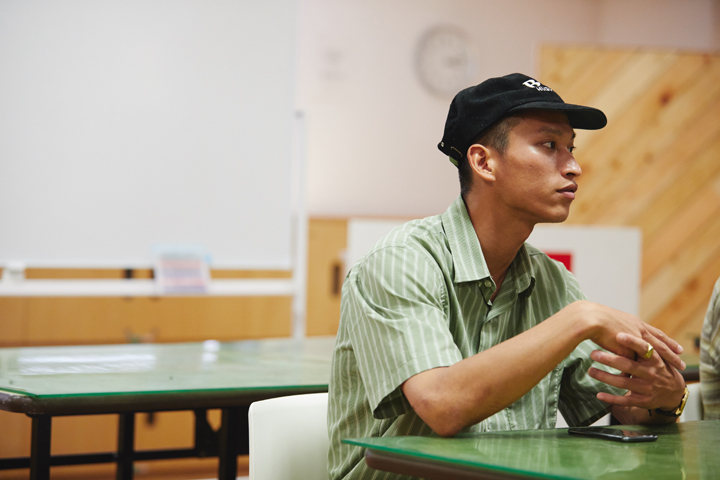
V: Do you ever feel a generation gap with them?
H: Sometimes I don't know the word they're using. Like "levechi." It means "different level." After I found out what it meant, I started using it a lot (laughs).
I: Some of them don't know a famous skater that skaters normally know.
H: Yeah, that's true. Our generation was interested in the culture of skating. But nowadays, they're more focused on the tricks. I heard there are kids who just watch YouTube instead of skate videos.
R: Some kids don't even know about skate videos. I think most of them haven't even watched full-lengths. That's where I feel the gap. That's the biggest thing for me. Before, there was a certain way to become a pro skater. It started with shop-flow, and then you'd make a sponsor me tape.... Nowadays, there are ways to get more likes and followers through Instagram posts, or you can get involved with YouTubers and become famous all at once. There are so many ways to do it now.
V: Do you think it's important to teach them about the culture aspect of skating?
H: I don't like it when people push me, so I try to teach them when they're interested. It's not something that should be forced on you.
I: Yeah, I agree. I try to teach them when they ask me. Like earlier, "There used to be a way to send a sponsor me tape," or something like that.
V: Anything you found out being an instructor?
H: Both skating and painting, at first I thought I was going to mainly teach technique. But now, as I've been teaching, I've realized that students don't get motivated if I only teach technique. So when I thought about what I could do to motivate them, I thought it was important to have fun. If you enjoy it, you will definitely do it, right? That's what I realized. I mean, I'm skating because I enjoy it.
──Rob Taro
V: What are the strengths of a skater-based program?
R: I think you can get all these connections in skate community.
I: For example, you could meet people through Rob's connections. I think one of the strengths of the program is that it's easy to expand your community.
V: It sounds like an old-school skate shop.
H: Maybe you're right.
V: What do you want for your students?
I: I think skating will help develop a lot of different sensibilities. I hope they'll be able to have a creative job, like fashion, videos, music and so on.
H: I agree. Even if they don't work in the skating industry as a result, I hope their experiences in this school will help them in the future. I'm sure this program helps you develop communication skills, so maybe they'll end up meeting the right people and start doing something with them.
R: I also want them to spread what they've learned to their friends. Even if it's something as trivial as "Don't do mall grabs" or something (laughs).
V: You guys had the very first graduates this year. That must have been emotional.
H: Yeah. One of the students are now working as Lesque's assistant... I think that's amazing. His mom was really happy when she saw her son getting along with everyone at the graduation ceremony (laughs).
I: The atmosphere at the ceremony was really good. Everyone seemed to be having fun. It was a good graduation ceremony.
V: Let's wrap this up. Message to the young generation out there?
H: Enjoy life.
I: Don't give up on what you want to do. I think it's important to keep doing it. If you keep doing it, it can lead to a job. Make action and expand the scope of your community.
R: Same. Me too.
Hiroki Muraoka
@hirokimuraoka
Hiroki is one of the main riders at adidas Skateboarding Japan and is known for his unique trick selection. He's also known as an artist. He teaches skating and illustration at VANTAN.
Rob Taro
@rob.taro
Rob is a bilingual skater from New Jersey and he's been working on skate / documentary videos through his project Time Scan. He teaches skating, English and video editing at VANTAN.
Issei Morinaka
@isseimorinaka
Issei is a technical skater with next level board control. If you haven't checked his part in Wamono, a video by Nike SB Japan, you're missing out. He teaches skating at VANTAN.

